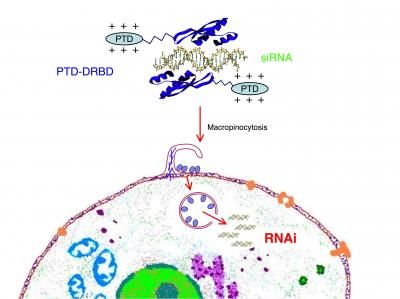Genetic Mutation Assay Brings Personalised Cancer Treatment One-Step Closer
Dia. DxS Ltd, the Manchester (UK) based personalised medicine company, announced today that it had taken a step closer to its goal of improving drug therapy by developing a diagnostic test which predicts response to anti-cancer drugs.
This follows the recent announcement by two leading US academic teams, at Massachusetts General Hospital and the Dana Farber Cancer Institute, that they had identified a set of genetic mutations that correlated with response to AstraZeneca's lung cancer drug Iressa. This is a therapy that works very well, but only in a small proportion of patients. Now, scientists have discovered a group of mutations in epidermal growth factor receptor (EGFR) - the target for the drug - that explain a big part of this drug's activity1-2. Patients who acquire one of these mutations do extremely well on Iressa. Unfortunately, the mutations are quite rare; only about 10 percent of patients show this response.
Iressa is by no means the only therapy that targets EGFR and now the FDA has stated that, "We will be asking people, especially those developing EGFR-targeting drugs, to look at this information." To allow this kind of testing in tandem with the use of Iressa and other drugs that target EGFR, such as Roche's Tarceva and Pfizer's CI-1033, there is a need for validated diagnostic assays.
However, there is a complication with the type of testing needed for this application. Because the mutations are found in the tumour they may constitute only a very small proportion of the total genetic material. For this reason any test must be very sensitive and able to detect low level mutations. DxS recently announced a licensing agreement with AstraZeneca to access the drugs giant's ARMS technology. "ARMS is a very powerful method to detect under-represented mutations," commented DxS's Chief Scientific Officer, Dr David Whitcombe. "When coupled with DxS's Scorpions detection system, we are able to detect mutations even when they comprise less than 1% of the total genetic material."
DxS's Chief Executive Officer, Dr Stephen Little, added, "We were very pleased when the EGFR data was announced. Our diagnostic test, which will meet all the standards of the European IVD regulations, will be useful initially within clinical studies to help to assess the clinical utility of the EGFR data. Subsequently it will be used as a diagnostic to identify good candidates for Iressa and other therapies. This is exactly the type of data that is required to progress the development of personalised medicine"
Other news from the department
Most read news
More news from our other portals
See the theme worlds for related content
Topic world Diagnostics
Diagnostics is at the heart of modern medicine and forms a crucial interface between research and patient care in the biotech and pharmaceutical industries. It not only enables early detection and monitoring of disease, but also plays a central role in individualized medicine by enabling targeted therapies based on an individual's genetic and molecular signature.

Topic world Diagnostics
Diagnostics is at the heart of modern medicine and forms a crucial interface between research and patient care in the biotech and pharmaceutical industries. It not only enables early detection and monitoring of disease, but also plays a central role in individualized medicine by enabling targeted therapies based on an individual's genetic and molecular signature.





































